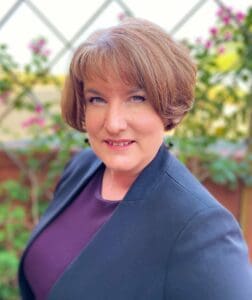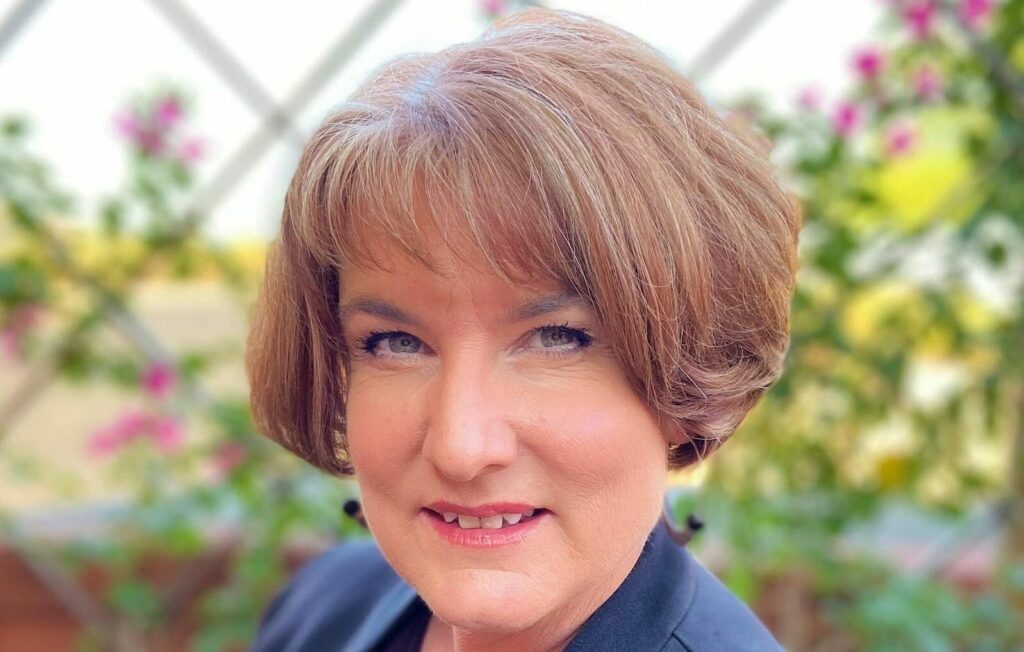January 2022 | Dr. Christina M. Kishimoto

Superintendent Melissa Sadorf’s rural leadership perspective may best be understood by considering her week-long hike down into the Grand Canyon that she took years ago with her former high school English teacher (now mentor) and several friends. Sure, the journey was hard, the backpack heavy, the conditions challenging and there was no turning back. But Melissa remembers this difficult journey fondly as a place where friendships were deepened, perspectives were reconsidered, and ideas were discussed within a unique space that allowed them to appreciate one another. This speaks much to how Melissa leads, learns and mentors others…through deep networks, friendships, collaboratives, and meaningful connections.
Speaking with Melissa Sadorf, superintendent of Stanfield Elementary School District in Arizona, gave me this same feeling of long-time friendships, a sharing of deep personal joy, and a feeling of being fully present in the now. Additionally, I was excited to learn hot-off-the-press news about new developments in Melissa’s professional journey.
The devastating impact of the COVID pandemic is real with pressures on Superintendents escalating beyond reasonableness, but Melissa has found a way to stay grounded and joyful in her community, her family and in her service to others. “The question of wellness is top of mind for leaders today, but it’s typically not about us, but about whether those around me are well, and so we sometimes forget to turn the mirror around and look at ourselves.” So, every morning she starts the day with meditation – thankful for the opportunity that comes with a full day ahead and a reminder to deeply appreciate those around her.
She begins her day grounded in the now. “I start my day with deep breathing, relaxing, clearing my mind, and see each day as a reset.” The rest of the day will be a whirlwind of crisis response, partnering with educators and community to support students, and networking with other thought leaders around improving support for rural educators. Despite the ever growing complexity of the role, Melissa says “I feel energized about the possibilities and moving the needle in new ways for kids.”
Melissa is a rural education leader who cares deeply about people. She actively contributes to the development of future leaders in her home state of Arizona and at the national level, particularly through mentoring and professional networks. Her policy passion is around quality leadership development, particularly of the School Principal. She understands that the school principal position is the orchestrator of school quality expectations and deliverables for kids, while also being the critical access point to district superintendency for rural educators. It is important to note that she draws her inspiration from the people of the Stanfield Elementary School district, a close-knit, diverse, family-focused rural community where she has led as Superintendent for the past ten years.
Her students are racially, ethnically and economically diverse, including first nation students, and twenty percent of her teachers are internationals working under federal work Visas. She believes this brings strength to the learning environment. “It’s an opportunity to build connections, build understanding across cultures and across race, and [serves as] a microcosm to ensure our kids have a diverse learning environment that will serve them well in life.”
Melissa is quick to mention the juxtaposition between her decade long Superintendent success and the dismal number of women who are provided the same opportunity and access as she has had to the executive seat. Her own access was not free of bias. Prior to being selected for Stanfield, Melissa shares that she watched herself be passed over in executive searches that resulted in all white male finalists, and discounted in interviews for her competing responsibilities as wife and mother. She recalls that the interview questions “skated along that line” but in reality they were neither subtle nor unbiased.
Melissa believes the added layers of bias that women of color contend with, is much worse, and also not subtle. While some boards are not ready for a woman leader, others are not willing to even consider a person of color. “As a White woman, my experience with gender biases are probably not as negatively impactful to my psyche as racial bias. Because I’ve seen that. That is so damaging and ugly and hard to navigate.”
The challenge of facing male conservative boards that are gatekeeping is figuring out when, how and if to respond and at what cost to your own future opportunities. “In rural communities they tend to be more conversative and gravitate more toward men.” “There are some situations, where no matter what I do or my record or what I talk about, or all my accolades, it’s not going to matter to them, because they are not going to get past the fact that I happen to be a woman.”
Melissa advises women that when they are in this situation, to reconsider their interest in working in that community since the lack of board support will make the job impossible. Melissa describes her experience with the board in Stanfield as very positive over her entire decade there, and she says that “makes all the difference in aligning with who you are and where you want to grow forward.” Melissa believes that the growth of women’s networks has been invaluable to getting support through these situations. Without these connections to talk through situations with other women, those accumulated biased comments “can just break you.”
Melissa loves her rural education experience and is a champion for rural educators. It is a place where people lead with deep and long standing community relationships that can be instrumental in addressing rural school designs. She describes rural as having a context that is different from urbans, with greater isolation, less resources, less well paying jobs and many part-time roles. “There is no affinity grouping within rural districts, you’re it!” A school principal can be the special education director and also be the bus driver. A secondary teacher may be the single teacher of science, social studies and math.
The Superintendent is the business manager and the grants administrator. It’s a unique work situation, but it also tends to be a very close, intimate set of relationships that hold the community together and provide consistency over lifetimes. This is what led Melissa to get together with colleagues to create a space for rural leaders in Arizona to talk, share ideas and find solutions together. There was such a great need for networking that these Arizona convenings have today morphed into a five-state collaborative.
One of the key areas of focus for rural educators is how to support students through the isolation challenge. “In a community like ours that is six hundred square miles and is resource poor, we lack consistent food security, broadband access, cell phone tower access, medical access.” From an academic growth perspective, “when you have absolutely nothing to visualize a life that looks different than the only one you know, how do you get yourself into new roles? We have a moral obligation to provide that exposure through college, careers, CTE, and experiences. There is power in showing [students] the opportunities and mentoring them.”
Melissa notes that the challenges faced by rural and urban educators overlap in many ways. “It’s very interesting how both rural and urban students lack access even though resources in urban areas may be closer to them.” Opportunity and access, particularly for students in poverty, is a national issue across community types. “It seems to be that the barriers in terms of equity whether it’s racial equity, religious equity…it’s access, it’s opportunity…poverty is a huge issue, it’s not just a rural issue.” Melissa sees the poverty conversation as critical to the national policy dialogue.
It’s hard to miss Melissa’s energy around her work. She works continuously to be the best version of herself as informed over time by her parents, mentors, and friends who “helped her uncover who I am.” This week, it was announced that she was competitively selected as President Elect of the National Rural Education Association – work that will deepen her national reach and provide her with another equity policy pulpit. Additionally, Melissa has added to her leadership journey as she closed a book deal with ASCD to publish a much anticipated piece about rural education later this year. Melissa is a leader that is on an equity journey where she is leveraging her positional privilege to break down barriers for students and aspiring leaders. Melissa is at the policy table using her voice for equity.
——————————–
Dr. Melissa Sadorf is School Superintendent of the Stanfield Elementary School District in Pinal County, a small rural school district in Stanfield, Arizona, which is equidistant between Phoenix to its north and Tucson to its southeast. Dr. Sadorf advocates for rural education and rural leaders within local, state and national organizations to help raise awareness on the unique challenges that rural educators face. She hosts a podcast that explores rural issues and also holds monthly superintendent virtual round tables to ensure rural voices are being heard. Connect with Melissa on Twitter @dr_sadorf

